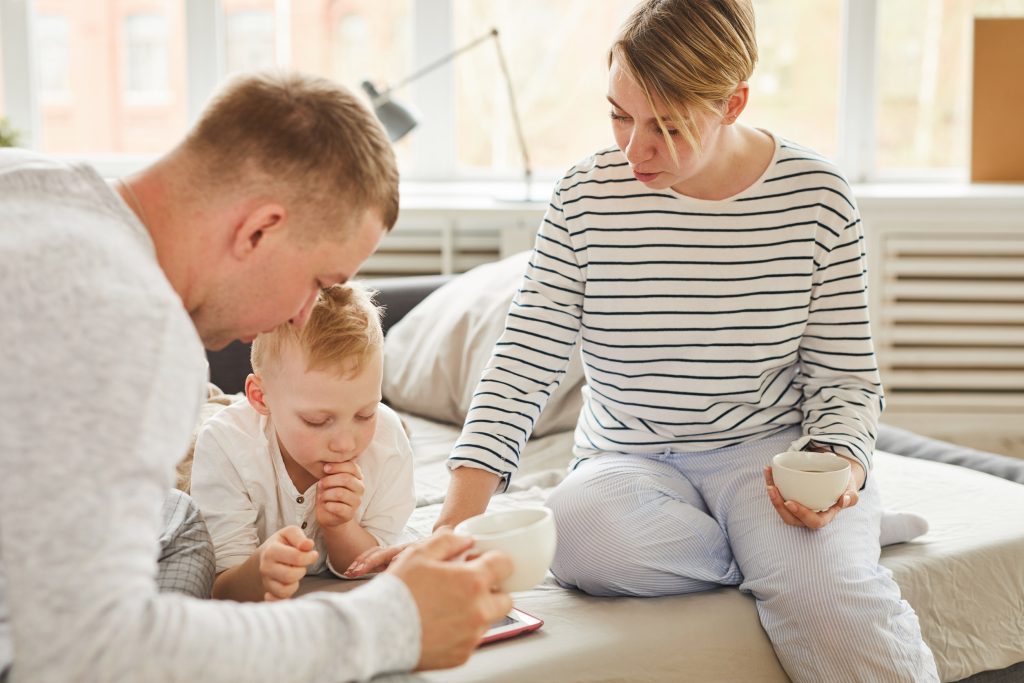
We all remember those tiny lies adults told us when we were young—“Santa is watching,” “This won’t hurt,” or “We’ll talk about it later.” At the time, they may have seemed harmless or even comforting. But for many of us, those small lies planted seeds of confusion. Over time, we learned that adults didn’t always tell the truth—especially when the truth was uncomfortable.
As parents, many of us find ourselves repeating the same cycle, not out of malice, but out of habit or fear. We lie to avoid meltdowns, tough conversations, or simply because we don’t know what else to say. The problem is these patterns create long-term effects we rarely acknowledge. Let’s explore how this generational habit of lying to our children impacts them—and how we can start doing better.
1. The “Because I Said So” Mentality Silences Curiosity
How many times have we said “Because I said so” just to end a conversation? It’s a phrase many of us heard growing up, and it’s one we tend to repeat without thinking. But this kind of response shuts down a child’s natural curiosity. It teaches them that questioning authority is wrong and that their thoughts aren’t valid. Over time, they may become passive or fearful of speaking up, even when it matters.
Instead of defaulting to control, we can try explaining things in an age-appropriate way. Saying, “We’re doing this because it’s safer,” or “I know it’s hard, but this is what’s best right now,” invites understanding. It teaches kids how to think critically rather than blindly obey. It’s not about giving in—it’s about building mutual respect.
2. Hiding Our Emotions Confuses Their Reality
Kids are incredibly perceptive. They notice when something feels off—whether it’s a tense conversation, an emotional parent, or a shift in mood. But when we respond with “Everything’s fine,” we send a conflicting message. We’re asking them to ignore what they’re feeling and trust our words over their instincts. That’s a dangerous lesson to teach.
Being honest doesn’t mean dumping our adult problems on our children. It means being real without being overwhelming. Saying, “I’m having a tough day, but I’ll be okay,” models emotional awareness. It lets kids know it’s okay to feel things—and that emotions aren’t something to be hidden or feared.
3. Overpraising Leads to False Confidence
We all want to encourage our kids and make them feel good about themselves. But when we say, “Great job!” for everything—regardless of effort or outcome—it loses meaning. Kids know when they didn’t really do their best. Over time, they start relying on external praise instead of internal motivation.
Instead of empty compliments, focus on specifics. Try saying, “You really focused on that puzzle and didn’t give up,” or “I love how creative you were with your drawing.” This kind of feedback builds real confidence rooted in effort and growth—not just approval. It tells them that their process matters, not just the end result.
4. Fear-Based Lies Create Mistrust

Sometimes we lie to keep our kids safe. We say, “If you don’t behave, the police will come,” or “The doctor will give you a shot if you keep yelling.” These fear-based tactics might work in the short term, but they damage trust long-term. They teach kids to fear authority figures instead of understanding boundaries and consequences.
There are better ways to guide behavior. Explain the natural consequences of actions: “If you run into the street, it’s dangerous and someone could get hurt.” That gives context, not just control. It encourages kids to make smart choices, not fearful ones.
5. Breaking the Cycle Means Getting Uncomfortable
Most of us lie to our kids because that’s what we saw growing up. It feels familiar, and often, it feels easier. But easier doesn’t always mean better. If we want to raise emotionally intelligent, self-aware kids, we need to model honesty—even when it’s hard. Breaking the cycle means getting uncomfortable.
That means admitting when we’re wrong. Saying, “I shouldn’t have yelled, I was frustrated but that wasn’t fair to you.” It means answering tough questions honestly, even if the answer is, “I don’t know, but I’ll find out.” These moments of honesty build a foundation of trust and show our kids that being human isn’t something to hide.
Breaking the Cycle Starts with Us
Lying to our kids—whether through omission, overprotection, or convenience—does more harm than we realize. It chips away at their ability to trust, to feel safe, and to believe in the people they love most. But the good news? We can break the cycle.
We can choose truth over ease. We can have hard conversations. We can model integrity. Every honest moment with our child builds a new foundation—one based on connection, not control. If we want our kids to grow up emotionally strong, resilient, and confident, it starts with showing them what honest love really looks like.
Have you caught yourself repeating a lie you were told as a child? What steps have you taken to change that pattern? Share your thoughts in the comments—we’re all learning together.
Read More:
The 7 Worst Parenting Mistakes That No One Talks About (But Should)
9 Lessons from Boomer Parenting That Still Apply Today

Latrice is a dedicated professional with a rich background in social work, complemented by an Associate Degree in the field. Her journey has been uniquely shaped by the rewarding experience of being a stay-at-home mom to her two children, aged 13 and 5. This role has not only been a testament to her commitment to family but has also provided her with invaluable life lessons and insights.
As a mother, Latrice has embraced the opportunity to educate her children on essential life skills, with a special focus on financial literacy, the nuances of life, and the importance of inner peace.
